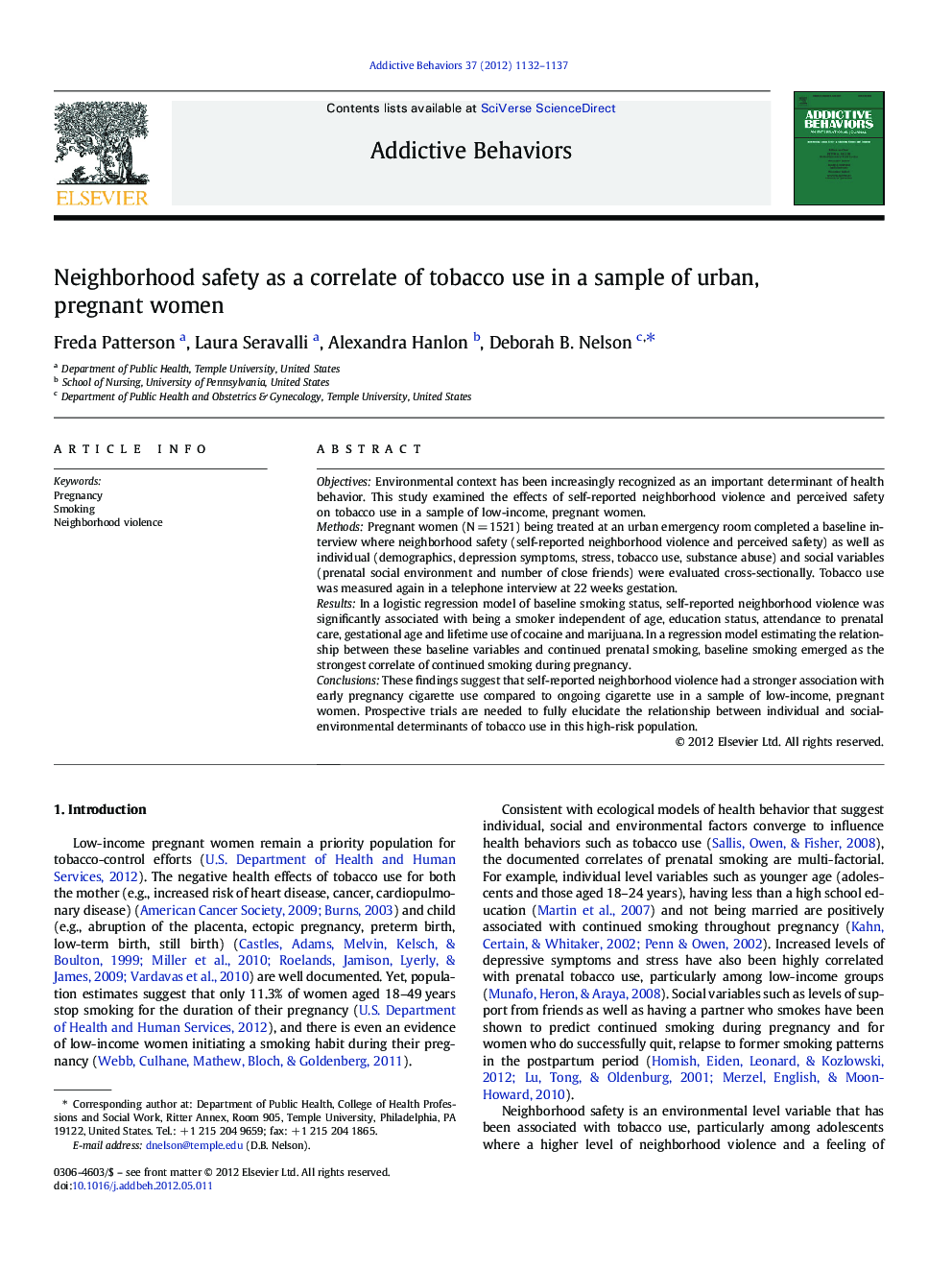| Article ID | Journal | Published Year | Pages | File Type |
|---|---|---|---|---|
| 899032 | Addictive Behaviors | 2012 | 6 Pages |
ObjectivesEnvironmental context has been increasingly recognized as an important determinant of health behavior. This study examined the effects of self-reported neighborhood violence and perceived safety on tobacco use in a sample of low-income, pregnant women.MethodsPregnant women (N = 1521) being treated at an urban emergency room completed a baseline interview where neighborhood safety (self-reported neighborhood violence and perceived safety) as well as individual (demographics, depression symptoms, stress, tobacco use, substance abuse) and social variables (prenatal social environment and number of close friends) were evaluated cross-sectionally. Tobacco use was measured again in a telephone interview at 22 weeks gestation.ResultsIn a logistic regression model of baseline smoking status, self-reported neighborhood violence was significantly associated with being a smoker independent of age, education status, attendance to prenatal care, gestational age and lifetime use of cocaine and marijuana. In a regression model estimating the relationship between these baseline variables and continued prenatal smoking, baseline smoking emerged as the strongest correlate of continued smoking during pregnancy.ConclusionsThese findings suggest that self-reported neighborhood violence had a stronger association with early pregnancy cigarette use compared to ongoing cigarette use in a sample of low-income, pregnant women. Prospective trials are needed to fully elucidate the relationship between individual and social-environmental determinants of tobacco use in this high-risk population.
►Environment is increasingly seen as an important determinant of health behavior. ►1521 minority pregnant women completed measures on tobacco use, violence and safety. ► Self-reported neighborhood violence was significantly associated with tobacco use. ► Baseline smoking was the strongest correlate of continued smoking during pregnancy. ►Both individual and social–environmental correlates of tobacco use are important.
